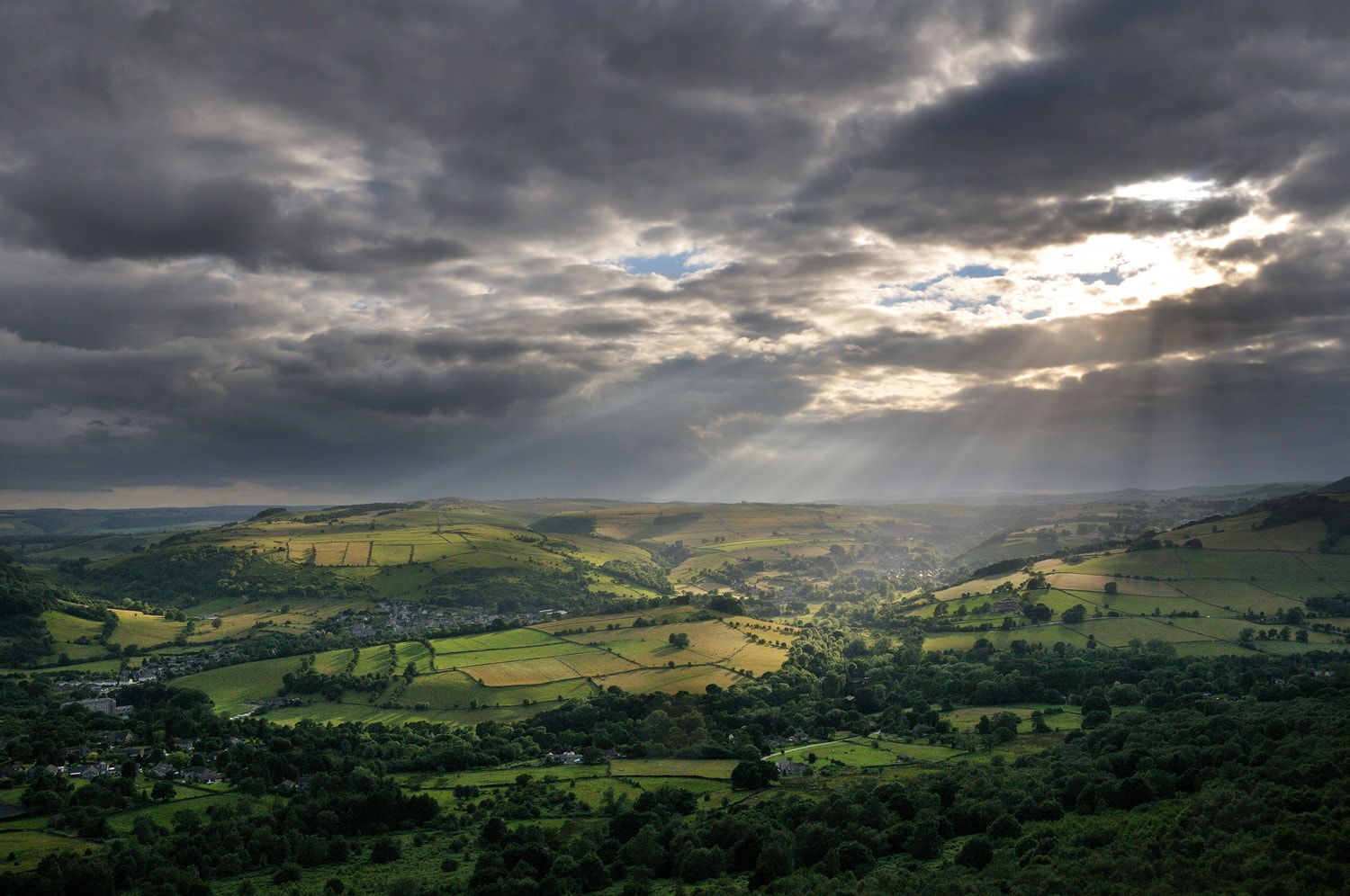Results of online survey Dec 2020

Our survey was online from October to December 2020. Almost 900 people responded, 57% being National Park residents.
Almost half of responders were aged 60 and over and 24% were in the 50-59 age bracket. For this reason we produced a ‘streamlined’ version of the survey which was promoted to young people and available on-line from December 2020 to May 2021. The results of this survey are analysed separately.
32 % of responders work in the National Park, 18% run a business and 4.7% run a farm.
The Built Environment
Our survey shows strong support for innovative design, that respects heritage and character, but that also addresses climate change, with 92 % of respondents supporting this proposition.
Climate Change
Our current approach to renewable energy generation, supporting smaller-scale technologies but resisting larger-scale wind turbines and large solar farms, is supported by 77% of responders. 86% of responders think we should consider retrofit rather than knock down and re-build and 80% of responders believe that climate change should underpin all our policies.
Housing
78 % of responders strongly agree or agree with our ‘tried and tested’ approach, which is to only permit new build housing on small sites that are within or on the edge of settlements, and to restrict this to affordable housing that meets recognised local need. The same support is shown for our existing policy that permits open market housing only where it helps to regenerate a previously developed site or a building that has some cultural heritage value.
84% of responders would support a ‘primary occupancy clause’ so that new open market housing is lived in permanently and cannot legally be used as holiday or second homes.
67% of responders agree that we may need to plan for specialist needs such as extra care developments, sheltered housing and more single storey accommodation.
81% of responders agree that development should happen ‘organically’ and with the involvement and consent of the community (for example through a neighbourhood plan or a community land trust) rather than by us drawing boundaries around settlements and identifying sites for development in the Local Plan.
There is less support for our current ‘settlement strategy’ that allows new development in 63 named settlements. Only 45% support our policy, whilst 12% oppose it.
70% of responders support the idea of development ‘breaking out’ from the edge of settlements if necessary, but a significant minority disagree (16%).
Shops and Community Facilities
The overwhelming majority of responders agree that planning policies should locate shops and community facilities in existing settlements and resist their loss (93%); that community buildings should be allowed to accommodate a mix of uses such as social events and workspaces (98%); that we should support self-sufficient communities via allotments, renewable energy and broadband (94%) and that residents should have easy or convenient access to greenspaces for children’s play, sport and access to nature (91%).
Economic Development
85% of responders agree that new economic development should also seek to reduce travel, adapt to and mitigate climate change, conserve traditional character and foster net gains in wildlife. 88% agree that businesses should be directed to existing business sites, converted traditional farm buildings and above existing commercial buildings, or be supported through home working.
Landscape, Biodiversity and Nature Recovery
There is strong support for nature recovery and increased biodiversity. 82% of responders would support a changed National Park landscape (wetter, more wooded and wilder) to achieve this. Similarly, responders agree that applications for development should be considered in accordance with a spatial plan for nature recovery (83%) and that any ‘exceptional’ development permitted in the wilder, more remote ‘Natural Zone’ must support nature recovery (90%).
Transport
There is support for the current policy which restricts new road building in the National Park, but where essential, requires net environmental enhancement (65%). However a significant percentage disagree with this approach (13%). The question on ‘safeguarding’ the former Matlock to Buxton (Monsal Trail) and Woodhead (Trans Pennine Trail) railway routes produced a mixed response. 44% of responders agree that they should be safeguarded for use as a trail, but 41% disagree. New or enlarged car parks are not normally permitted but support for this approach was mixed – 57% agree, 21% disagree.
Recreation
The question of whether we should restrict larger recreation and tourism development to ‘hub sites’ that can be accessed by non-car means, produced a mixed response. 57% of responders agree with such a restriction but 20% do not. 77% of responders agree that new build hotel accommodation outside of Bakewell should be restricted to brownfield sites. 79% of responders agree with current policies that prevent new static caravans, chalets and lodges in the open countryside but give scope for touring caravans, tents, camping pods and shepherd huts.
Utilities
A majority (77%) agree that our policies for water security, flow and supply should focus on moorland management (keeping the land wet through moss regeneration and gully blocking) rather than safeguarding areas for new reservoirs. A majority (80%) agree that when planning permission is needed for telecommunication infrastructure, policies should encourage mast sharing, and control location, height and design.
Minerals
The majority (72%) agree with strategic policies that seek to gradually reduce the impact and extent of quarries and support small sites for building and roofing stone for use primarily in the National Park. The question of whether to extend existing mineral operations that are currently operating with ‘old’ planning permissions produced a mixed response. 40% think that permissions should be extended to allow all the reserves to be exhausted, and 28% think they should not.

